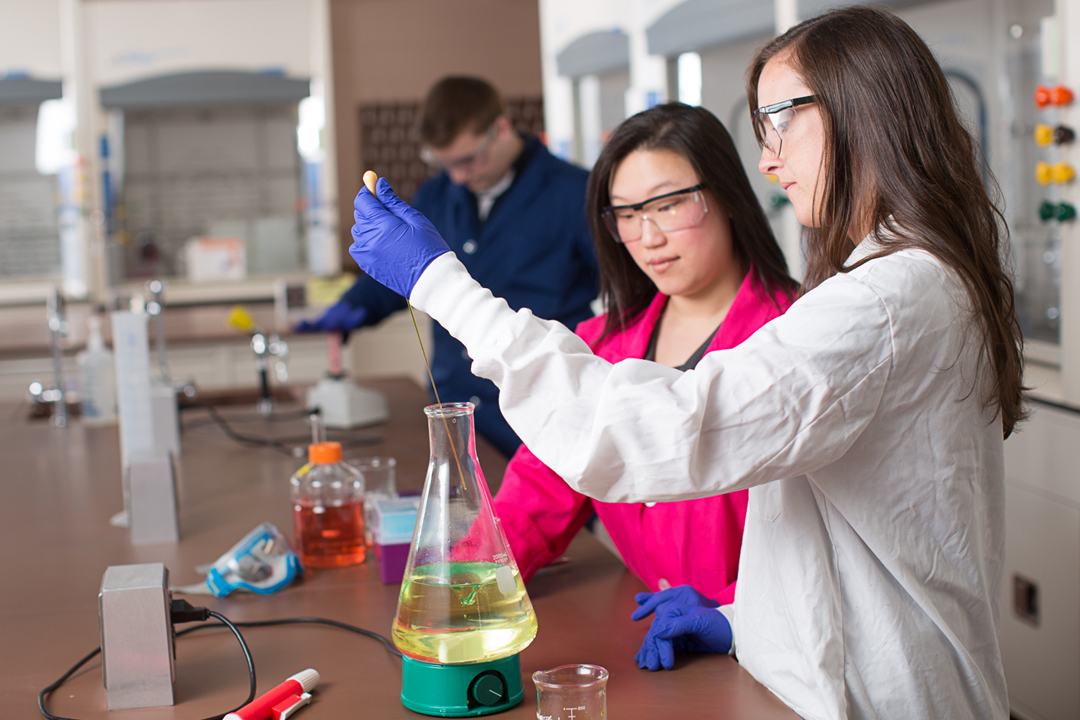Viruses, vaccines, and treatments
Real Life Science: Biochemistry
Lea Vacca Michel, associate professor at the RIT School of Chemistry and Materials Science conducting research in her lab with a student.
Biochemists focus on the chemistry of living things. They play an important role in discovering and describing how viruses make people sick. Biochemists also contribute to the development of vaccines (for protection) and therapeutics (for treatments). They use different techniques, methods, and instruments to better understand the molecular mechanisms of disease—the more we know, the better prepared we can be for future outbreaks.
“Biochemists study how viruses replicate in host cells using biomolecules,” said RIT associate professor, Lea Vacca Michel. “We can learn a lot about new viruses by studying other viruses—their disease-causing properties and the human response to infection.”
As a biochemist, you might find yourself working in academic laboratories, biotech/pharmaceutical companies or government organizations such as:
- • National Institutes of Health (NIH)
- • Centers for Disease Control and Prevention (CDC)
- • World Health Organization (WHO)
Also, biochemists make GREAT, well-prepared medical professionals (doctors, nurses, physician assistants, dentists, etc.). If you’re looking for the skills to make a difference in the world, a degree in biochemistry could be a good fit for you.
RIT’s bachelor’s degree in biochemistry addresses challenges facing the chemical, pharmaceutical, and biotechnological fields, offering students many hands-on research experiences. RIT’s Undergraduate Chemistry Research Scholars are currently working with faculty mentors on research projects focused on organic, physical, analytical, environmental, materials, polymer, and biological chemistry.
RIT is preparing the next generation of biochemists at The School of Chemistry and Materials Science.














